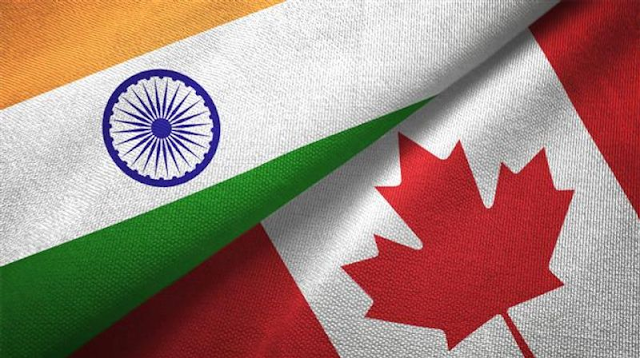In a major development within Canadian politics, a shift seems to be underway that could mark the beginning of a crackdown on pro-Khalistani elements within the country. Recently, Canadian authorities have reportedly detained Khalistani activist Arshdeep Singh Gill, popularly known as Arshdeep Dalla, who was closely associated with Hardeep Singh Nijjar, a prominent Khalistani figure murdered in 2023. This incident has sent a strong signal about potential changes in how Canada may approach separatist and extremist activities within its borders.
A Turning Point in Canadian Politics?
This crackdown appears to be part of a broader shift within Canadian politics. Following Prime Minister Justin Trudeau’s recent statements acknowledging the Khalistani threat in Canada, political analysts suggest that Trudeau may be reconsidering his earlier stance, potentially moving away from policies perceived as supportive of minority factions. Trudeau’s recent remarks admitted that certain Khalistani groups pose risks, stating that these elements do not represent the Sikh community as a whole.
Political pressure has been mounting on Trudeau since recent violent incidents, including a high-profile attack on a Hindu temple by Khalistani-linked groups. This event stirred public outcry, with many Canadians expressing concern over rising gang violence linked to extremist factions. Observers indicate that Trudeau’s Liberal Party, facing waning support, could be strategically shifting its stance to appeal to mainstream voters who oppose such extremist actions.
Dalla’s Arrest: A Warning to Pro-Khalistani Elements?
Arshdeep Dalla, seen as Nijjar’s “second-in-command” within the Khalistan Tiger Force (KTF), has been a notable figure in various violent incidents and is wanted in India for numerous criminal charges under the Unlawful Activities Prevention Act (UAPA) 1967. Indian agencies, including the National Investigation Agency (NIA) and Delhi Police, have long been tracking Dalla for his alleged involvement in murder and gang activities with implications for both Canada and India.
Canadian authorities are reportedly cracking down on individuals like Dalla, with recent detentions linked to a violent altercation on October 28 that involved gunfire and allegedly included members of Khalistani-linked groups. While the Canadian police have yet to make an official statement, this arrest signals an active response to rising public and diplomatic concerns over extremist violence.
Political Realignment and the Future of Canada-India Relations
Trudeau’s political landscape appears increasingly precarious, as opposition leader Pierre Poilievre’s popularity grows. Poilievre, a strong critic of Khalistani activities in Canada, has gained support from voters disillusioned by Trudeau’s handling of extremist factions. With upcoming elections, Trudeau’s Liberal Party faces the challenge of balancing minority politics with national interests, as Canadian natives have increasingly voiced frustration with violence linked to pro-Khalistan elements.
Trudeau’s latest statements reflect a notable departure from the minority-focused politics that previously characterized his stance on issues related to the Sikh community. The admission of a “safe haven” status for Khalistani extremists is a 360-degree shift that many did not expect. This recalibration may serve to restore public confidence in Trudeau’s administration as it prioritizes peace and order over catering to specific factions.
Implications for the Future
As Canada navigates this new terrain, the arrest of figures like Arshdeep Dalla sends a clear message to pro-Khalistani elements. Authorities are taking a firmer stance, likely aiming to mitigate the influence of extremist factions. For India, these developments offer hope for stronger cooperation on security issues with Canada, as both nations strive to manage separatist threats that pose significant risks to peace and stability.
The upcoming Canadian elections will likely reveal the long-term impacts of this shift. Trudeau’s Liberal Party may need to rethink its minority-oriented policies if it aims to retain power, especially as opposition leaders continue to rally Canadians around calls for tougher actions on extremist elements.





